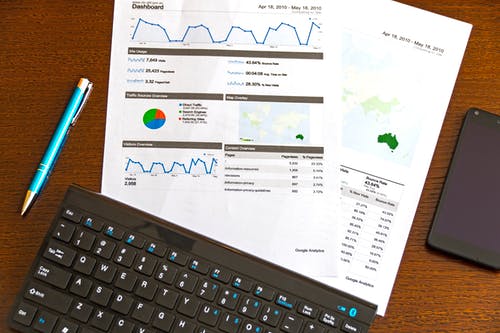Before applying for a business credit card, you should learn how to check your business credit score. Your business credit score is the prime factor banks and credit card companies will look at to decide if you are creditworthy and use to set the rates, they will charge you. Knowing your business credit score helps you see what types of rates you can qualify for and compare credit card offers.

Checking Your Business Credit Score
You can see your business credit score on your business credit report. Besides an overall business credit score, you will also see some of the underlying data that credit bureaus use to calculate your score. This is the information about your business that credit card issuers will analyze when evaluating your credit card application.
When you apply for a business credit card, the application will likely ask for information including:
- Your legal business name
- Your business address
- Industry/type of business
- Tax identification number
- Yearly revenue
- Monthly expenses
Card issuers want to make sure this information matches up with what they see when they check the financial health of your business with a business credit report.
Card issuers may also require personal credit information, especially for small businesses. This may include your name, date of birth, Social Security number, and personal income. The longer you have been in business and the better your business credit history, the less importance is put on your personal credit score. If you are a relatively new company or a startup, you will want to check your personal credit score as well.
What Credit Card Companies Look for in a Business Credit Score
Credit card companies will look first at your business credit score to determine your overall creditworthiness. However, if your business credit is less than perfect, card issuers will dig further into the underlying information that is listed on your business credit report.
Some of the major red flags card issuers will look for include:
- Tax liens
- Lawsuits or judgments
- Collections
- Bankruptcies
These red flags may disqualify you from getting an unsecured business credit card or line of credit. In that case, you may have to pledge assets as collateral to get a secured line of credit.
Beyond that, card issuers will also take a look at how you have handled business credit in the past. This includes things such as:
- Your total amount of credit available
- Your credit utilization rate
- Your debt-to-income ratio
- Whether you have current debt
- Whether you pay your bills on time
You can see all of this is information on your business credit report, along with your credit score.
The better your credit, the greater the likelihood you can get a business credit card. The worse your credit score and risk profile are, the harder it will be to get a business credit card with a low interest rate.
Check Your Business Credit Report Before Shopping for a Business Credit Card
Pulling your business credit report will help when you are shopping around for a business credit card. Card issuers determine rates and terms based on your credit score, so knowing your business credit score will help you compare interest rates to see if you are getting a good deal.
Once you have got your credit score you can start looking a business credit card such as the Capital on Tap where you can get up to £75 for free with a capital on tap promo code.
The average business credit card interest in 2021 is 16.84% — about a point and a half higher than existing consumer credit cards, but lower than new offers. Here is the impact of your credit score on the rates you may qualify to get according to WalletHub:
Excellent Credit
Those with excellent credit may qualify for rates around 13.07%. Excellent credit generally requires a business credit score between 90 and 100 and a personal credit score of 720 or better.
Good Credit
Businesses with good credit may see rates in the 19.5% range. To qualify for good credit status, your business credit score should be between 80 and 90 with a personal credit score between 660 and 719.
Fair Credit
Those with higher credit risk profiles, considered fair credit, may see credit card rates as high as 22.46. Fair credit generally includes those with business credit scores between 70 and 80 and personal credit scores in the 620 to 659 range.
While each card issuer will have different rates and evaluate your credit differently, these are general rules to see the rates you may get and to use when comparing credit card offers.
When you are shopping for a business credit card, remember that interest rates are just one element to consider. Also, consider annual fees, payment terms, minimum payments, and any perks like reward points.
How to Check My Business Credit Score
When you want to check your business credit score, Command Credit makes it easy to do.
Go to CommandCredit.net and select Self-Serve Business Report to check your business credit score instantly with a business credit report from Dun & Bradstreet, Equifax, or Experian.
